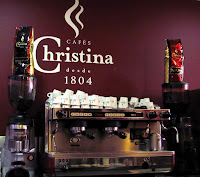Culture of Porto city (EN)
Although Porto has always been Portugal's second most important cultural centre, it as really taken off as a lively arts spot since it's European Capital of Culture status in 2001.
Several good museums offer art, artifacts and more unsual offerings, such as old trams. Porto is also represented: you can visit the various shippers lodges, and the Museu do Vinho do Porto.
| Museu do Vinho do Porto |
Porto's architecture is another cultural attraction and one of the reasons why part of the city is a UNESCO World Heritage Site.
This is centred on the Ribeira district (the site also covers the Mosteiro da Serra do Pilar across the Douro river, and the area around Sé Cathedral), where architecture dates from the Middle Ages to 19th century neoclassical.
Many fine churches in the centre of Porto city display various architectural styles including medieval.
Renaissance and Baroque, and the are important neoclassical buildings such as Sao Bento railway station, the Palácio da Bolsa and the Hospital de Santo Antonio.
| Palácio da Bolsa |
Look out for the many buildings decorated with azulejos (hand painted tiles, usually with figurative designs) around the UNESCO area and the town centre.
The Avenida da Boavista, and the area around it, has many impressive villas dating from the 19th century and the 1930's.
Notable modern buildings in the city include the Museu de Arte Contemporânea (contemporary art museum), designed by Alvaro Siza Vieira in 1999, and Dutch architect Rem Koolhaas's Casa da Música, which is opened in 2005.
| Casa da Música |
Unic theatre and dance, both classical and contemporary are very important in Porto.
Also see
Foz do Porto (http://photoblog-favoritus.blogspot.com/2014/12/foz-do-porto-en.html)
Also see
Foz do Porto (http://photoblog-favoritus.blogspot.com/2014/12/foz-do-porto-en.html)
João Pires
|




Comentários
Enviar um comentário